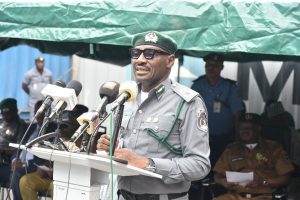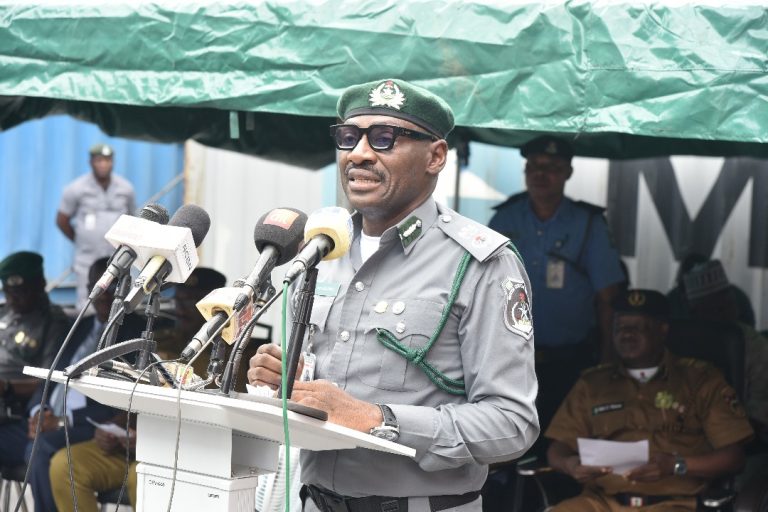- As UK, Ohanaeze, ACF, PDP warn soldiers against coup over Buratai’s alert
The scenario has become pretty familiar by now. Sometime in the early morning, a missile roars off its launcher in North Korea and flies off — to a splash zone somewhere in the Pacific Ocean. But what if Pyongyang wasn’t just testing its hardware or drilling its troops? How long would it take to hit its real-world, primary targets?
Below, two experts talk to The Associated Press about what would happen if North Korea fired at targets near and far. They are David Wright, senior scientist and co-director of the Global Security Program of the Union of Concerned Scientists, and analyst Markus Schiller, of ST Analytics, an independent space technology and rocketry consulting company based in Germany.
Well before North Korea had a nuclear program, it realized it could hold the 10 million people of greater Seoul, the capital of South Korea, hostage with the threat of a massive, conventional artillery strike from its dug-in gun batteries concentrated just north of the Demilitarized Zone.
If it were to launch such a strike first, the first wave of shells could land with essentially no warning. Estimates vary as to how much damage such an attack could actually wreak — Pyongyang can’t, as it has claimed, reduce Seoul to a sea of ashes before a pulverizing counterattack — but it would be considerable.
It has Patriot missile-defense batteries, but they are intended to protect against short-range Scud missiles. They would not help against an artillery attack. The much-talked-about, state-of-the-art THAAD missile defense system deployed in South Korea this month also cannot protect Seoul from either artillery or incoming missiles — it isn’t designed to do that from its current site.
To make things uglier, the North could hit the South with chemical or biological warheads.
One nuclear scenario that has been raised is an attack on the city of Busan, a major port sometimes used by the U.S. Navy. That’s an option Pyongyang might consider if it believed it was under immediate threat of attack and wanted to make a show of overwhelming force to keep Washington from committing further.
Japan also has Patriot missiles it deploys, among other places, on the grounds of its Defense Ministry in downtown Tokyo.
It helped develop with the U.S. the ship-based Aegis system, which is designed to intercept medium-range missiles and potentially intermediate-range ones — that means missiles with a range of less than about 5,000 kilometers (3,100 miles).
The Patriots are designed to intercept an incoming missile at its “terminal stage” — just before it hits — if the Aegis’ ship-based SM-3 missiles fail to intercept them farther out and higher up, at mid-course.
Schiller has one strong caution at this point: It remains unknown whether Pyongyang actually has a working nuclear warhead, “not just some nuclear device that goes boom in a tunnel, under laboratory conditions.”
But serious questions have been raised over whether this multilayer strategy, even when augmented by the THAAD system, would be a reliable missile shield.
One problem is whether it could be overwhelmed by a “swarm” attack — several incoming missiles at the same time.
North Korea, likely aware of that fear, simultaneously launched four medium-range Scud ER missiles into the Sea of Japan in March.
Recognizing the current shield’s weaknesses, some Japanese ruling party lawmakers are pushing for a first-strike plan of Japan’s own, using ballistic or cruise missiles, or F-35 stealth fighters.
In the meantime, regional bodies, the Peoples Democratic Party, civil rights groups and a Senior Advocate of Nigeria among others, on Wednesday, urged military officers and other individuals toying with the idea of a coup in Nigeria to perish the thought.
Among those that condemned the alleged plot of a military intervention are the United Kingdom Government; the umbrella body for the North, the Arewa Consultative Forum; the Igbo socio-political organisation, the Ohanaeze Ndigbo; and a prominent lawyer, Alhaji Yusuf Ali (SAN).
Also, two Civil-Society Organisations – Committee for the Defence of Human Rights and the Coalition Against Corrupt Leaders – condemned the alleged romance between some Nigerians and a soldiers for political reasons.
In separate interviews with The PUNCH on Wednesday, they declared that coups were no longer fashionable.
The Pan-Yoruba socio-cultural organisation, Afenifere, however, warned Buratai not to turn himself to a whistle-blower.
They spoke against the backdrop of a warning by the Chief of Army Staff, Lt. Gen. Tukur Buratai, who alleged, on Tuesday, that some people were approaching soldiers for political reasons, warning the soldiers, who might heed such overtures of serious consequences.
A statement by the Director of Army Public Relations, Brig.-Gen. Sani Usman, on Tuesday, stated, “This is to inform the public that the Chief of Army Staff, Lt. Gen. T. Y. Buratai, has received information that some individuals have been approaching some officers and soldiers for undisclosed political reasons. On the basis of that, he has warned such persons to desist from these acts.”
Although Buratai did not elaborate on the political reasons, there had been fears by some Nigerians that such hobnobbing is a bad omen and may lead to a military intervention.
Curiously also, the COAS warning came a week after a major shakeup in the top echelons of the Army.
Abc with additional report from Punch





















